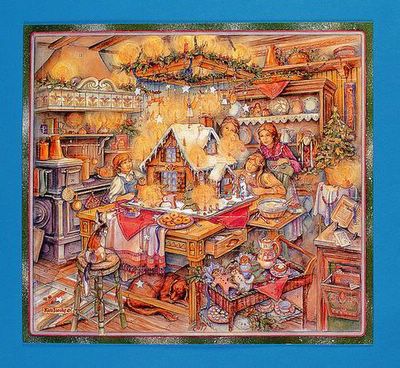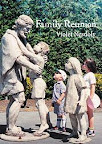Book: The Jordan Tracks
Author: Steven W. Wise
Genre: Young-adult to Adult Fiction
ISBN: 1-4208-1360-9
From the first sentence of the ‘Prologue’:
"Clarence Bates plopped down heavily in his chair and looked past lazy eyelids across the supper table at the twelve-year-old son who would kill him within two minutes."
I knew that in
The Jordan Tracks, I was in the hands of a skilled storyteller.
This tale of Ernie and Christa Bates set in California, Missouri, takes place in 1968. It opens with Ernie and Christa eagerly awaiting the return of Aaron, their only and beloved son, from soldier duty Vietnam.
As the story progresses, we are introduced to a cast of characters you would find in any small town. Besides Ernie, Christa and Aaron, Harley and Fudd, Ernie’s buddies from the turkey plant play the most important roles.
Wise shows his characterization skills in numerous scenes where his people strut their stuff. Here, for example is a taste of his gritty and sometimes humorous style as we join Ernie, Fudd and the rest of the crew at their lunch break:
Ernie stepped out of the blood room, shook his head at Fudd. "How can anybody covered with turkey crap be that hungry?"
"Ain’t nothin’ ever slowed down my jaws in eatin’ or talkin,’ you know that, Ernie." He paused, swiped at a feather clinging to his eyebrow. "If my Margie packed another egg salad sandwich I’ll break down and bawl. Man’s got to have a sandwich his teeth can feel, by dang. Good cookie needs to be soft, but not a sandwich!
...After several gallons of hot water and two dizen paper towels were expended, the men pulled metal charis up to the long Formica-topped table and popped open their lunch pails.
"That’s more like it...spiced beef and onions," Fudd purred. "A man can make some energy with this kind of grub."
Dorsey shook his head and rolled his eyes toward the ceiling. "Why don’t you just breathe on the birds while they pass by, and I’ll turn off the shocker...they’ll be stunned worse than electricity."
Fudd swallowed a gigantic bite and slowly licked his lips as he grinned at Dorsey. "Didn’t know you were gettin’ so dainty in your old age, boss man."
That’s the tone of the story throughout. It’s real life. It’s common people, poking fun at, crying with and loving each other. The themes it tackles are the themes of real life: work, celebration, family, death, depression, living with a non-Christian husband, making peace with a dark murky past, recognizing the ways God brings people to Himself. If it were a play, one stage set would be the interior of a middle-class home, another the woods, a third the turkey plant where the job of the three main characters is to catch, clamp and behead the birds (all described in technicolor).
As I said at the outset, Steven Wise knows how to tell a story. He heightens suspense when he flashes to scenes of Aaron in Vietnam, using as a transitioning device, the fact that Ernie and Aaron’s thoughts are often with each other. In several places he hooks the reader even more obviously with outright premonitions experienced by Ernie, Christa, and Aaron’s best friend Pima.
The Christian angle of the book is delivered mainly through Christa and Ernie’s caring friend Harley. It is Harley’s name for his favorite spot to pray, the railroad tracks which run between the cemetery and the turkey plant (and which he dubs the Jordan Tracks), which gives the book its name. The ‘Jordan’ gains significance in another way as the story progresses. By the end of the book, the spiritual ‘plot’ usurps the story’s plot in importance.
One of the ways I judge the success of a book is by how conscious I am of the writer’s devices. For me, the least successful (1's) are books in which I’m aware of what the author is doing, and the most successful (5's) those in which I forget all about the teller and am gripped by the story. I’d rank this book a 4.75, with marks taken off for, in a very few places, boggy prose, wordiness and awkward sentence structure.
For anyone who enjoys a finely written, substantial tale, delivered through the lives of next-door-neighbor-type characters, with about as much of the unexplainable (read ‘miraclulous') as one finds in real life, and pervaded by the perfume of the Father’s love throughout,
The Jordan Tracks is a book I’d highly recommend for young-adult to adult readers.
*************
Disclaimer: The book
The Jordan Tracks was sent to me by
Mind & Media as a gift from the publisher who donated the books for reviewers.




